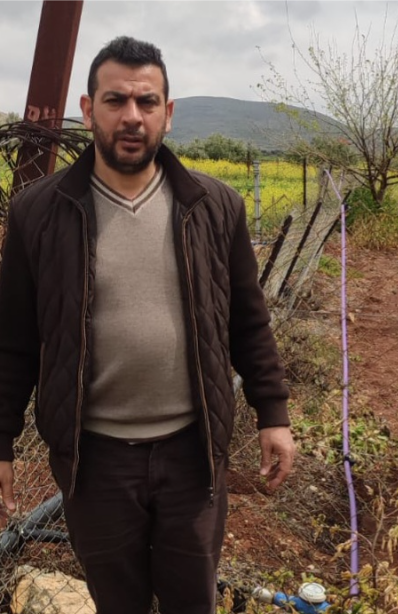Palestinian Farmers Reap Benefits of the MENAWARA Project

Palestine - Ali Hilwan, a farmer from Beit Dajan, west of Nablus, expressed his satisfaction with the MENAWARA project, which has provided an irrigation network for his olive cultivation. Water consumption, access to water and water distribution by Israel and the occupied Palestinian territories reflect drastic inequalities, with Israel currently controlling around 80% of the water reserves in the West Bank.
Hilwan, now a member of the newly established Water User Association, believes that the iniative has been beneficial for farmers in terms of governance and organization. He says that the association helped them organize themselves as users and work collectively to better regulate irrigation and distribution of effluent, ultimately ensuring suitable water for irrigation.
The MENAWARA project has also held training courses for farmers in Beit Dajan. The training was intensive and targeted farmers through face-to-face meetings and field visits. One of the most important outcomes of the training was that the more a farmer's interest in agriculture and irrigation increases, the more productivity in terms of quantity and quality will significantly increase, leading to increased profitability.This was the first time they would be irrigating the olive trees with this water.
Hilwan believes that the project has been successful because the wastewater treatment plant (WWTP) is functioning properly, and the farmers can reuse the treated water. He also noted that the public's perception of reusing wastewater is improving. In the past, it was not even acceptable to talk about irrigation with what was called "sewer water," but now farmers are reusing it.
“the aim of establishing the Water Users Association is to organize ourselves as Users, to work collectively and regulate irrigation and distribution, and to ensure quantity and quality so that it conforms to what we have learned through training courses”
Ali remarked.
Despite the project's success, Hilwan notes that some obstacles remain related to the public's awareness of treated water. More awareness is needed to show people that this is a valuable water resource that can be used for agriculture and investment. The project has changed farmers' views on agriculture, transforming it from a traditional practice to an economic project. They are now benefiting from the treated water according to specified quantities for each type of crop and according to seasonal needs.
In conclusion, the MENAWARA project has been a boon for farmers in Beit Dajan. Through the establishment of the Water User Association and intensive trainings, farmers have been able to better regulate irrigation and distribution of effluent, ensuring suitable water for their crops. The reuse of treated water has changed farmers' views on agriculture, turning it into an economic venture, which could ultimately lead to increased profitability.







